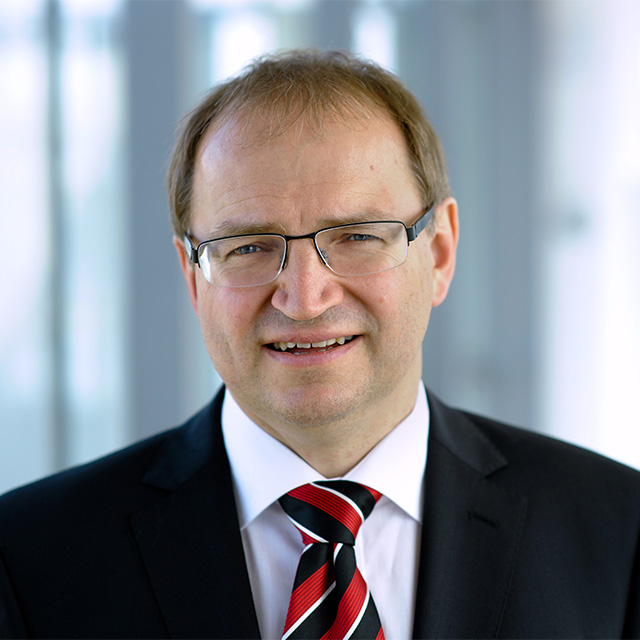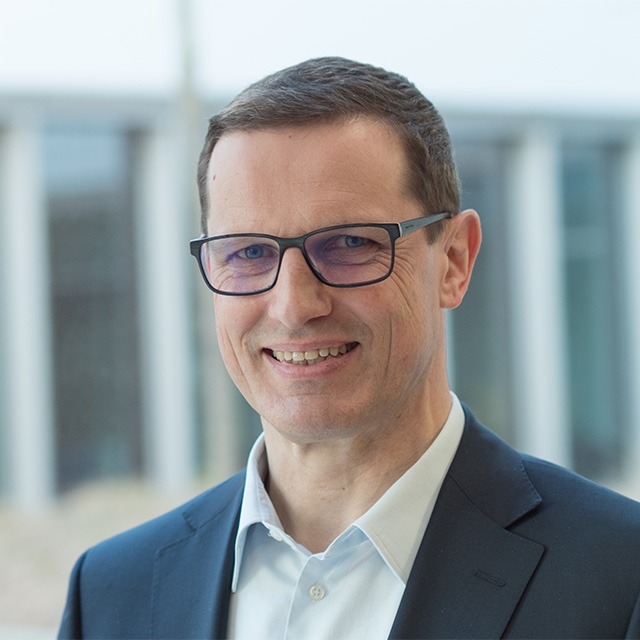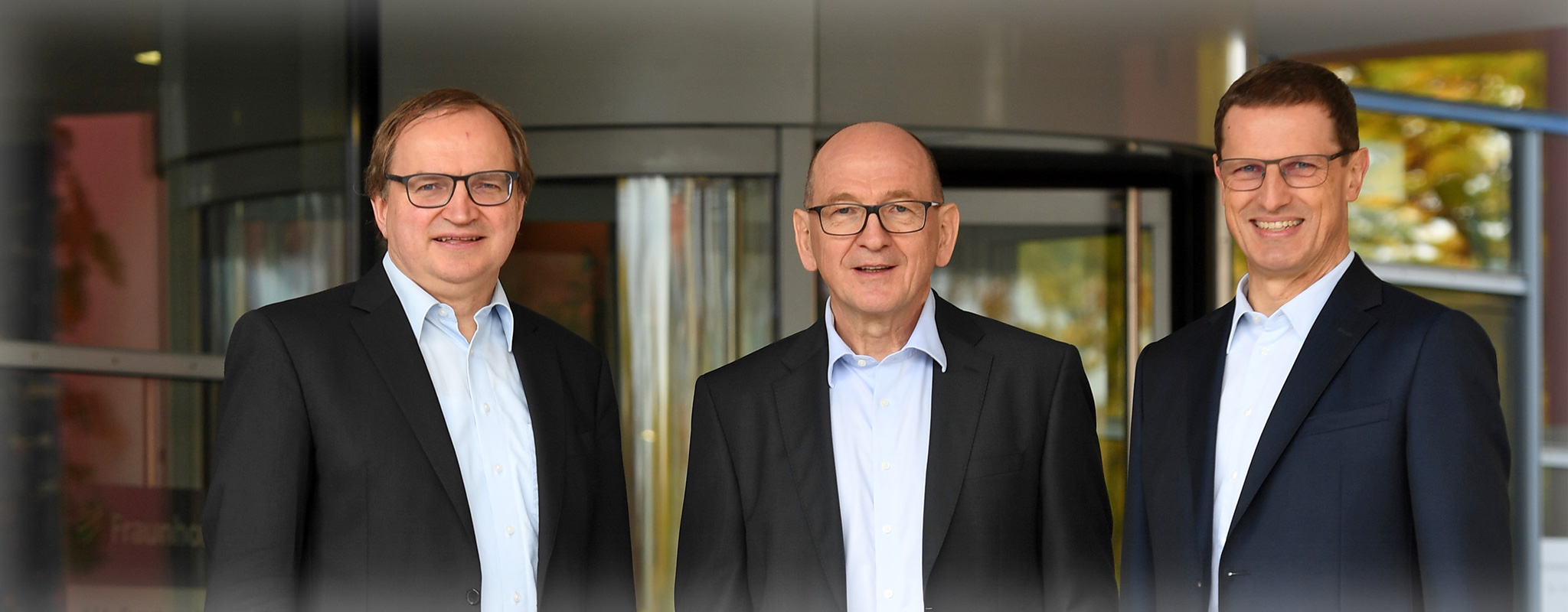How Fraunhofer IIS is meeting the challenges of the future
Prof. Dr. Albert Heuberger

How do we deploy AI directly at the sensor?
Albert Heuberger: Our goal is to obtain information of optimum quality from sensor systems. Near-sensor AI allows us to make adaptive adjustments to the sensor, which yields data of much higher quality than provided by conventional sensor systems. Above all, AI-supported sensor systems will be much easier to integrate and to operate. The system will take many work steps off the hands of users and help them with tasks such as making the right settings.
How can neuromorphic hardware increase the performance capability and energy efficiency of entire systems?
Neuromorphic hardware is modeled on neurobiological architectures, enabling it to simulate neural networks in integrated circuits. The computing of data runs parallel in distributed memory units, which also eliminates the time-consuming transfer of data between execution unit and memory. This makes neuromorphic chips much faster and more energy efficient than the processors used before. As a result, it becomes possible to implement complex AI algorithms on mobile, battery-operated devices..
How can next-generation computing help digitalization succeed in Europe?
The current digitalization push involves large data volumes and significant energy consumption. With next-generation computing, we want to develop hybrid, secure computer technologies that are used either individually or complementarily, depending on the problem at hand. This will help maintain and expand research expertise and technological sovereignty in Europe.
Next Generation Computing

Privacy warning
With the click on the play button an external video from www.youtube.com is loaded and started. Your data is possible transferred and stored to third party. Do not start the video if you disagree. Find more about the youtube privacy statement under the following link: https://policies.google.com/privacyProf. Dr. Bernhard Grill
Where do problems exist that traditional methods can’t solve, and how can AI be of help?
Bernhard Grill: Above all else, AI is the further development of tools. We’ve already identified numerous applications and issues where traditional approaches to identifying a solution are reaching their limits, but where AI methods have delivered very promising results; one good example is signal processing. For instance, we managed to use AI-based methods to solve a dilemma faced by broadcasting stations: How do you create the best sound for a TV broadcast? With our AI-based dialog separation, people at home can use their remotes to decide for themselves how loud the dialog should be and how loud the background should be.
Looking at technological developments in the workplace, how can we place humans front and center in their jobs?
For me, it’s about building machines that make people’s lives even easier. Although in essence, it’s also about getting machines to do even more of the boring, mindless tasks so that people don’t have to. Our contribution will be to develop important components for such future technological solutions.
Fraunhofer IIS is also doing work on speech interfaces. What is the vision behind this?
In the future, we expect every device that is in any way operated will have voice control technology. However, the solutions available today are still far from ideal. In collaboration with Fraunhofer IAIS, we’re developing a voice assistant platform that combines our know-how in the domain of audio and voice signal processing with Fraunhofer IAIS’s experience in the domain of speech interpretation/evaluation. The result will be a system that is more flexible, easier to adapt and more secure.

Speech Interfaces

Privacy warning
With the click on the play button an external video from www.youtube.com is loaded and started. Your data is possible transferred and stored to third party. Do not start the video if you disagree. Find more about the youtube privacy statement under the following link: https://policies.google.com/privacyProf. Dr. Alexander Martin

How do we achieve high data quality?
Alexander Martin: Data is the raw material of AI: the higher the data quality, the better the AI. To achieve high data quality, heterogeneous data offers an advantage. In the coronavirus pandemic, for example, the data of individual countries is less useful as regards making predictions than the collected datasets of various countries.
How can we make AI applications sustainable?
The sustainability of AI applications refers both to the data and to the hardware. Data collection and storage generates sizeable and growing volumes of CO2 emissions, but so does the operation of hardware. Handling data in a resource-efficient manner means looking at data in terms of its entire life cycle. Sustainable and “green” IT systems – sometimes called “green ICT” – consume less energy and use resources responsibly.
How do we achieve European AI sovereignty?
It’s a matter of establishing a federal system for data supply and for data management, which suits Europe’s style of federalism much better than the United States’ purely capitalist model or China’s centralized system. A federal system ensures optimum cooperation across country borders while also guaranteeing regional sovereignty over data.
Sustainable AI

Privacy warning
With the click on the play button an external video from www.youtube.com is loaded and started. Your data is possible transferred and stored to third party. Do not start the video if you disagree. Find more about the youtube privacy statement under the following link: https://policies.google.com/privacy
